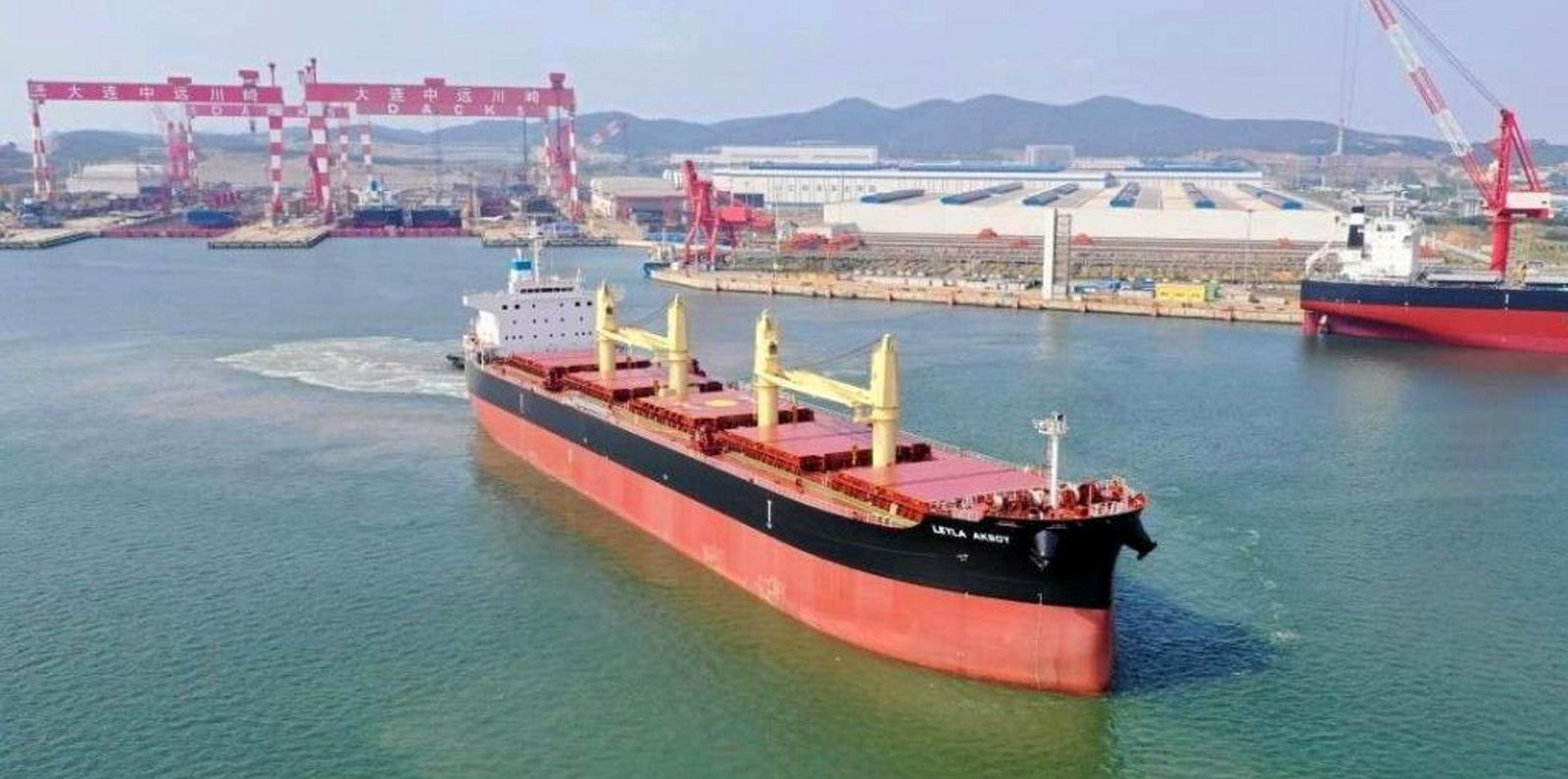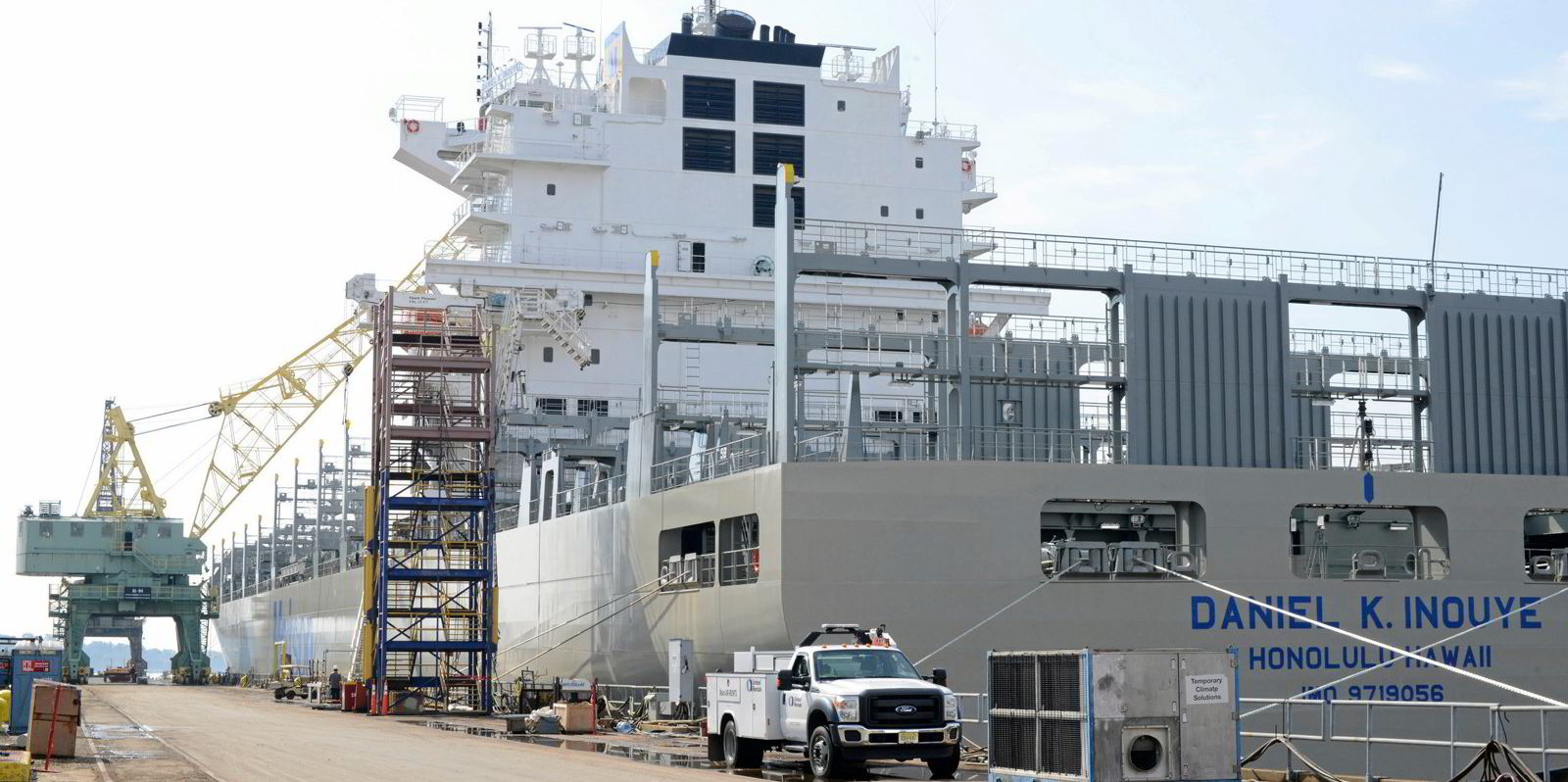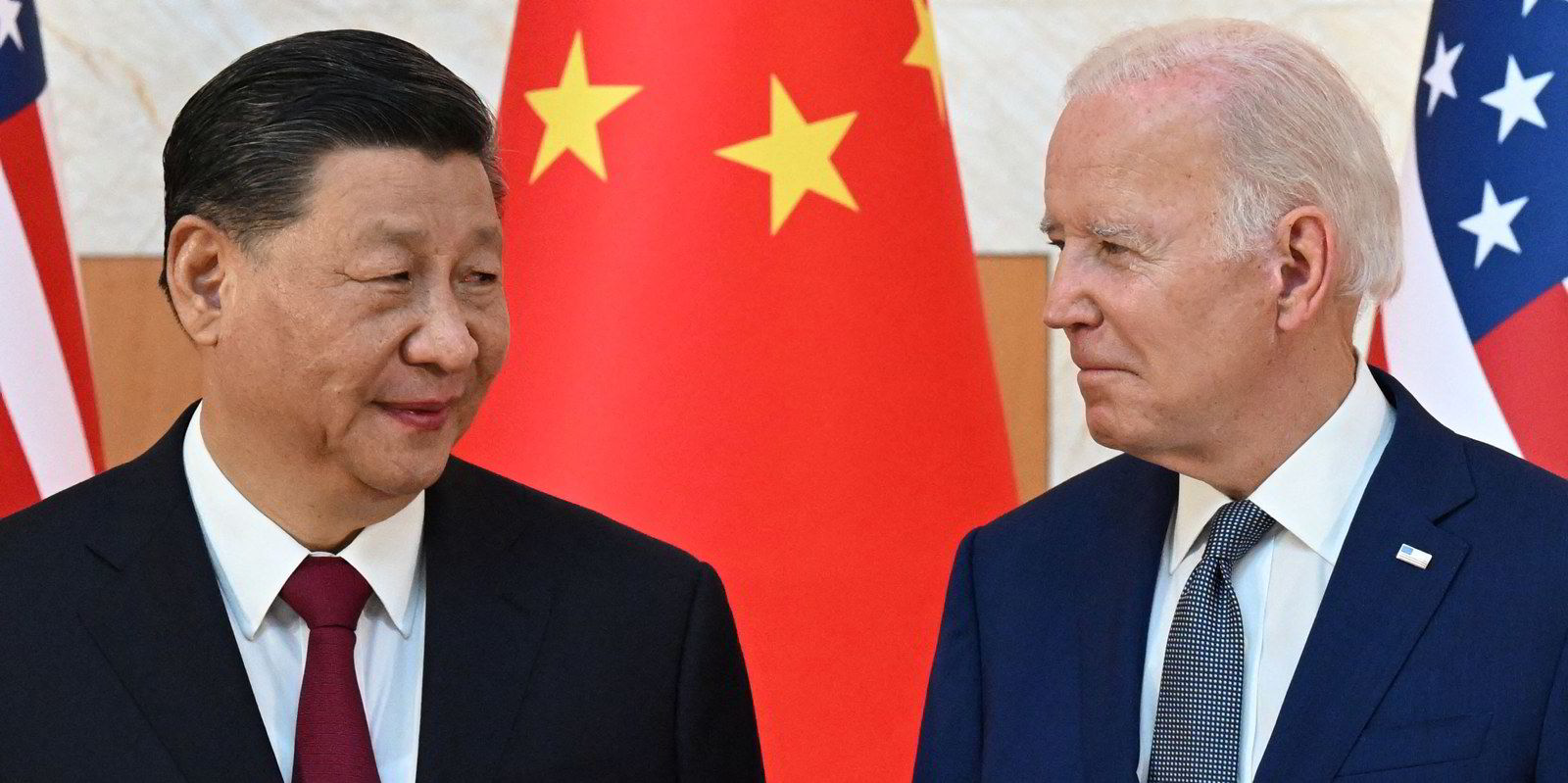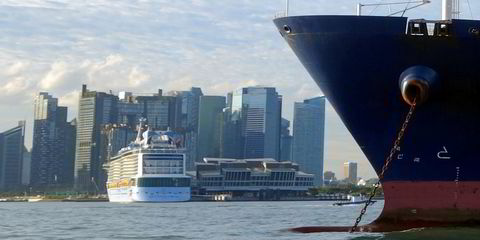The US is expected to launch an investigation into state support for China’s shipbuilding and maritime sectors.
Whether it will take up US labour unions’ request for that probe to result in port fees against Chinese-built ships and then spend the cash to revitalise the American shipbuilding sector is less certain.
The proposal is part of a petition by United Steelworkers and other labour groups calling for an investigation into what they call “unfair” practices by Beijing to support the Chinese shipbuilding and maritime sector.

US trade representative Katherine Tai, who touts the Biden administration’s trade policy as centred on workers, has until 26 April to decide whether to start an investigation.
The unions’ lawyers, led by Elizabeth Drake of Washington DC firm Schagrin Associates, have argued that Tai can take various actions, including levying a port fee on Chinese vessels.
“To obtain the elimination of China’s acts, policies and practices to dominate global maritime trade and logistics, [Tai] should impose a fee on every Chinese-built vessel that docks at a US port,” they wrote.
She should ensure that the fee is expensive enough to make up for the hundreds of billions of dollars that China spends on “unfair” support of its shipbuilding industry, and that it should vary by a vessel’s tonnage and age, they added.
The fee should also increase if Beijing does not eliminate its unfair practices.

Drake’s team argue that the fee would not significantly affect consumers but could generate billions of dollars in revenue.
If a 20,000-teu container ship faced a $1m fee, for example, it would cost half a cent for each pair of jeans carried by the vessel, they estimated.
The unions want the cash from the port fees to be funnelled into a shipbuilding revitalisation fund in the form of the Construction Differential Subsidy, which still exists in US law but was defunded in 1982, or into the federal ship financing programme or shipyard grants.
Chinese-built ships that are part of the Maritime Security Program or Tanker Security Program, two Maritime Administration subsidy schemes to keep militarily useful ships operating under the US flag, should not face the fee at first.
But the unions complain that there are no US-built ships in the programmes and want the port fees to also fund incentives to change that.
Michael Kaye, a trade lawyer at US firm Squire Patton Boggs, said Tai is almost certain to take up the petition and launch an investigation, though probably with a narrower scope than the unions are seeking.
Partly, that’s because it is an election year.
“China-bashing is the new hot trade policy tool — not just trade policy, it’s the new tool for everything. Whether it’s information and data privacy, whether it’s competition, everyone just wants to bash China,” he told TradeWinds. “China’s everybody’s convenient bogeyman.”
Kaye said that at the end of the investigation, the trade representative will probably issue recommendations to the White House rather than take action herself.

And he said President Joe Biden might not be able to take the actions proposed by the unions without legislation in Congress.
Since the petition was filed in March, several lawmakers in the president’s Democratic Party have urged Tai to launch an investigation.
“Our trade laws should level the playing field when foreign competitors like China cheat and put our companies and workers at risk,” Senator Sherrod Brown said on Thursday.
“The administration needs to take action, including an independent investigation and imposing tariffs, to protect America’s maritime and shipbuilding industry from dependence on foreign supply, prevent further loss of good-paying American jobs and strengthen our national security.”
Data from shipbroker Clarksons shows there are 2,839 vessels on order in China, compared with 58 in the US, including tugs and other small vessels.
The top executive of a shipowner with a fleet of US-built ships put the blame for that on Washington rather than Beijing.
“The root cause of the dispute is not that the Chinese are doing things that are unfair,” he told TradeWinds.
“It’s that this country has no maritime policy, and it has let the maritime industry basically decay because it hasn’t made it a strategic priority to sustain the maritime industry.”






